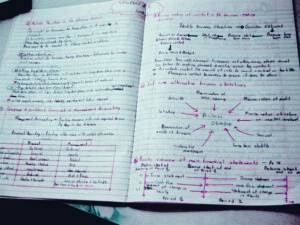Notes often reveal a wealth of information about the way a person thinks. From one glance you can tell whether someone is neat or disorganized. When it comes to taking good notes, it is all about structure and relationship. The best notes aim to focus on the facts of the material being presented. It is rarely about endless pages of words. Effective notes must be easy to read and follow. Once you master how to create good notes, your studying will be better.
Below are the following adult education tips to use.
1. Have structure
Good notes are only as good as their structure. Before commencing the process make sure you know exactly what type of structure you intend to use. For example, utilizing an outline is very beneficial. You could start with a chapter and bullet the sub-topics. Make sure to number each chapter to make it easy to follow. It makes no sense to jot words down without logical order. Keep a direction.
2. Right down important facts only
The number one mistake adult students make when writing notes is to write everything they see in the chapter. Most of the information in a chapter tends to be miscellaneous data. Do not attempt to digest each and every word. You will only feel overwhelmed. Instead, look for words in bold and the beginning of paragraphs. Usually, the beginning of paragraph lets you know what the main idea is. Make it easier on yourself.
3. Use a highlighter
Use a highlighter to make your notes more colorful and unique. Yellow is a great color because it helps important facts jump off the page. Do yourself a favor and make your notes interesting. Highlight definitions and words. It is vital to remember not to overdo it.
4. Date your notes
This is very important. Keep your notes dated at all times. The date should be at the top of the page and easy to see. Highlight the date, so you know you are current.
5. Make your notes relatable
Notes are just notes until you apply them to a real life situation. The moment you jot down some new information, turn it into a short story about you. This is a great way to retain information for an upcoming test or quiz.
6. Make sure your penmanship is legible
In other words, make sure you write neat enough to understand your own notes. Avoid writing in cursive writing. Print every word neatly the first time and try to minimize errors.
Note taking is an art. It can be learned or naturally developed over time. It is an extension of your thinking process so let it speak well of you.

